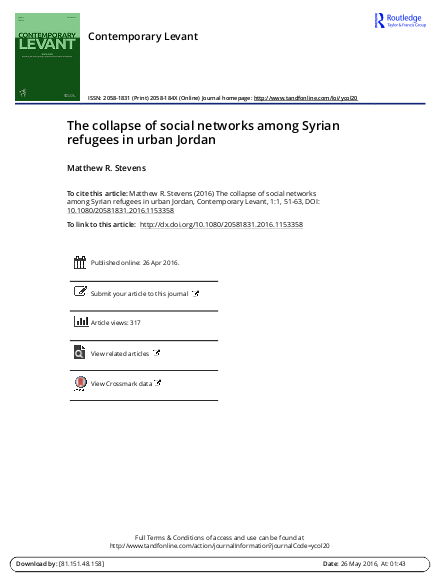
Strong social networks have been shown to correlate with improved economic outcomes and emotional wellbeing in urban refugee populations. In the Middle East and North Africa, social networks are based on a wide variety of relational identities that interconnect, suggesting an array of opportunities for community self-support. However, this research shows that Syrian refugees living in Irbid, Jordan, no longer actively turn to social networks for support. The financial and emotional strain of exile and the failure of international aid agencies to maintain pre-existing social connections and to support the development of new ones have led to the collapse of social networks among Syrian refugees in Jordan.
Resource collections
- UN Habitat - Urban Response Collection
- Urban Response - Urban Crisis Preparedness and Risk Reduction
- Urban Response Collection - Community Engagement and Social Cohesion
- Urban Response Collection - Economic Recovery
- Urban Response Collection - Environment and Climate Change
- Urban Response Collection - Housing, Land and Property
- Urban Response Collection - Urban Crisis Response, Recovery and Reconstruction
- Urban Response Collection - Urban Resilience